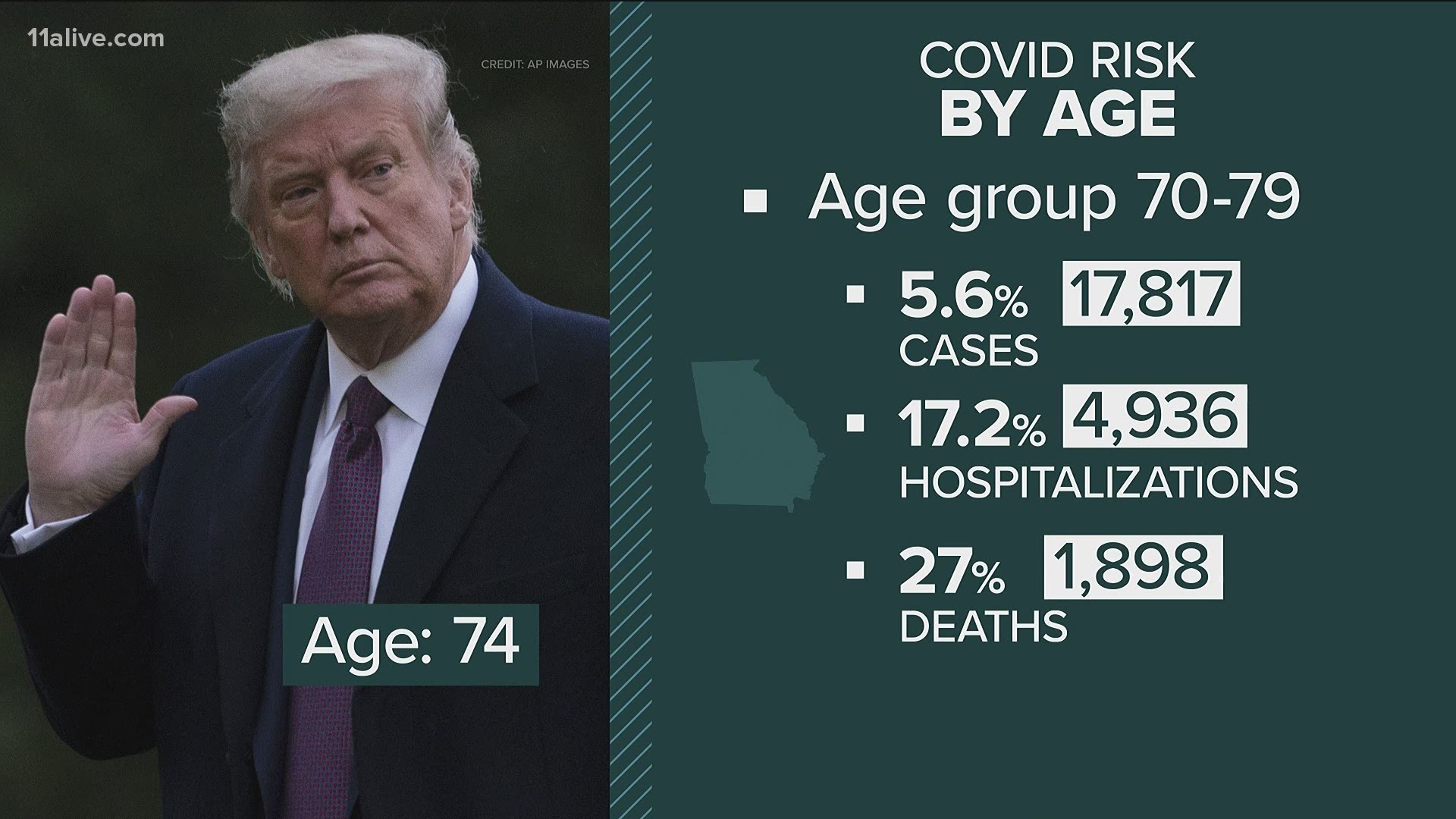ATLANTA — Doctors and medical experts suggest two risk factors are of particular concern for President Donald Trump as he begins his fight against COVID-19.
The president's age - 74 - and weight are areas that could impact how his body fights the virus and how likely he might be to develop severe symptoms. 11Alive spoke to medical experts in Georgia about what that could mean.
Even though the entire world has been studying COVID-19 closely, medical experts say there's still much that's unknown about the virus.
"One of the things we know for COVID is we have seen people in their 90s who don't have symptoms and people in their 20s who land in the intensive care unit," Dr. Marybeth Sexton said. "So, some of this, we don't understand yet about who gets so sick and why; so, that's why it's important to protect everybody."
Sexton is an expert in infectious disease. She said that advanced age has proven to be more of a risk factor.
The First Lady is 50 years old. Here in Georgia, that age group is broke down to 50-59. There have been almost 46,000 cases with 5,000 of them hospitalized and 665 deaths.
President Trump is 74. In his age group, there have been almost 18,000 cases in Georgia with nearly 5,000 hospitalizations and 1,898 deaths.
So, while there are fewer cases in the president's age group, that population has accounted for more of the deaths.
Emergency room doctor Mehrdod Ehteshami said he hasn't seen a slowdown of patients coming into his hospital in any age group.
"I haven't seen any slowdown in COVID patients coming into my ER," he said. "I haven't seen a single change. I've seen the same number of elderly patients as I am teenagers, as I am children."
The White House reports Donald and Melania Trump have mild symptoms right now and the doctors said that means supportive care such as rest, fluids, and isolation.
Doctors have found that steroids, plasma, and some medication can be helpful but only in severe cases where the patient is hospitalized.
Obesity is also a major risk factor according to the Centers for Disease Control and Prevention (CDC) The condition can triple the risk of hospitalization due to infection. It also decreases lung capacity and can make ventilation more difficult. It's also bee linked to an impaired immune system.

